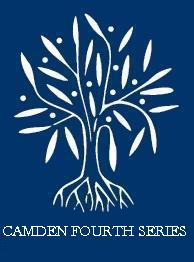No CrossRef data available.
Article contents
Part IV Epilogue
Published online by Cambridge University Press: 21 December 2009
Extract
108. The comptroller, Caraveo, protests to the British that the peace treaty provides that the Fort of Cavite and Fort Santiago should be restored with all their artillery intact. Manila, 16 September 1763. A.P.T., XVII, (no folio page).
Manila y septiembre 17 de 1763.
E1 Contador Don Fernando Carabeo se cerciora de si los británicos estraen los cañones, y si lo executan para su ocurso […?] para tomarse la providencia que corresponda. (Orendain.)
Yllmo. Señor:
En el artículo veinte y uno de los preliminares para la paz, se manda que todos los paizes y territorios, que puedan hauer sido conquistados en qualquiera parte del mundo, sea por las armas de sus magestades británica y fidelísima, o por las de sus magestades christianísima y cathólica, que no son comprehendidos en sus artículos, ni a título de ceciones, ni a título de restituciones, sean debueltos sin dificultad y sin exigir compensación.
- Type
- Research Article
- Information
- Camden Fourth Series , Volume 8: Documents Illustrating the British Conquest of Manila 1762–1763 , July 1971 , pp. 192 - 211
- Copyright
- Copyright © Royal Historical Society 1971
References
page 193 note 1 Caraveo's protest went unheeded. The artillery was confiscated and sold by the East India Company. See p. 40, note 1.
page 194 note 1 The Preliminaries of Peace were signed at Fontainebleau on 3 November 1762. The definitive treaty was signed in Paris on 10 February 1763.
page 197 note 1 The silver which Anda took from the galleon Philipino was used both to recruit his guerilla army and to entice soldiers and sailors to desert from the British force. The present town of Cainta in Luzon is known by tradition to be composed of descendants of some of the Sepoy troops who occupied Manila.
page 197 note 2 For Anda.
page 198 note 3 For Lucban.
page 198 note 4 For Tagal or Tagalog.
page 201 note 1 Rojo died on 30 January 1764.
page 204 note 1 The British departed from Manila on 12 April 1764, and even the departure was marked by a bitter controversy between the military and the East India Company over who should deliver the city to the Spaniards. A Mr. Horne summed up this final clash and the whole expedition to Manila: ‘With respect to us except the admiral and general and a few captains of Men of War, I don't know a person but what are considerable sufferers, indeed chiefly oweing to the misconduct of our chiefs (who if they have their deserts all deserve the gallows) and to the company not only an inormouse expence but the loss of the troops from this coast has allmost undone what they have been doing these ten years past. Happy for the company the French have neglected such an opertunity of recovering themselves. You will imagine I am very happy in being returned from so disagreable an expedition.’ Home to [Smith], Manila, no date, I.O.R., Orme MSS., 27, fo. 137.
page 206 note 1 For Grimaldi.




